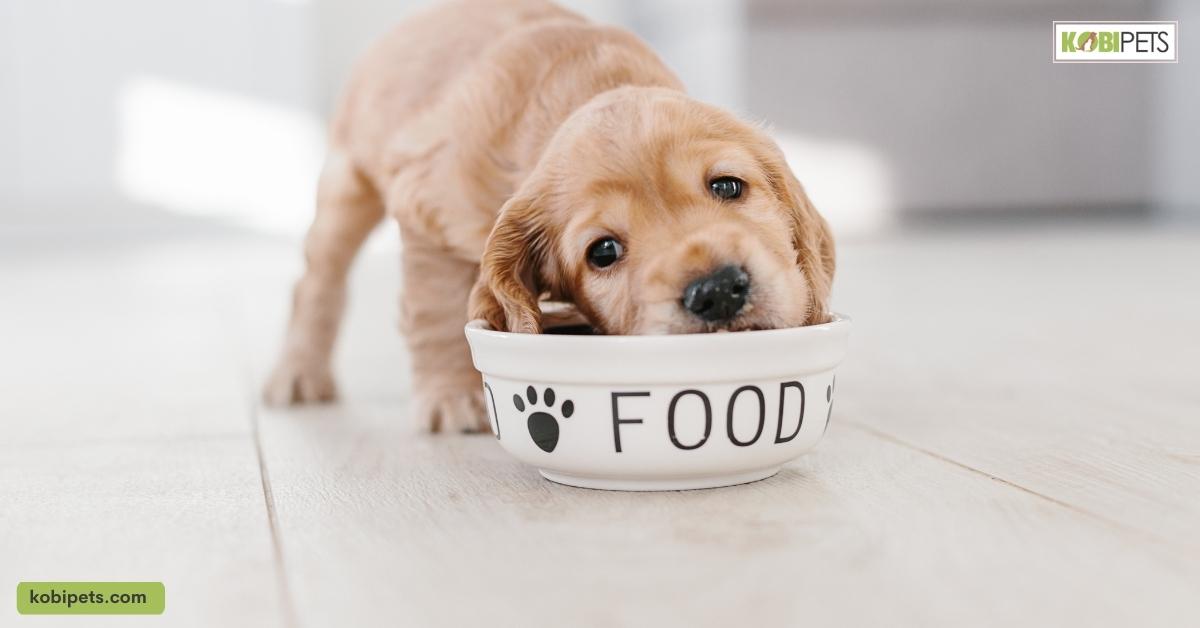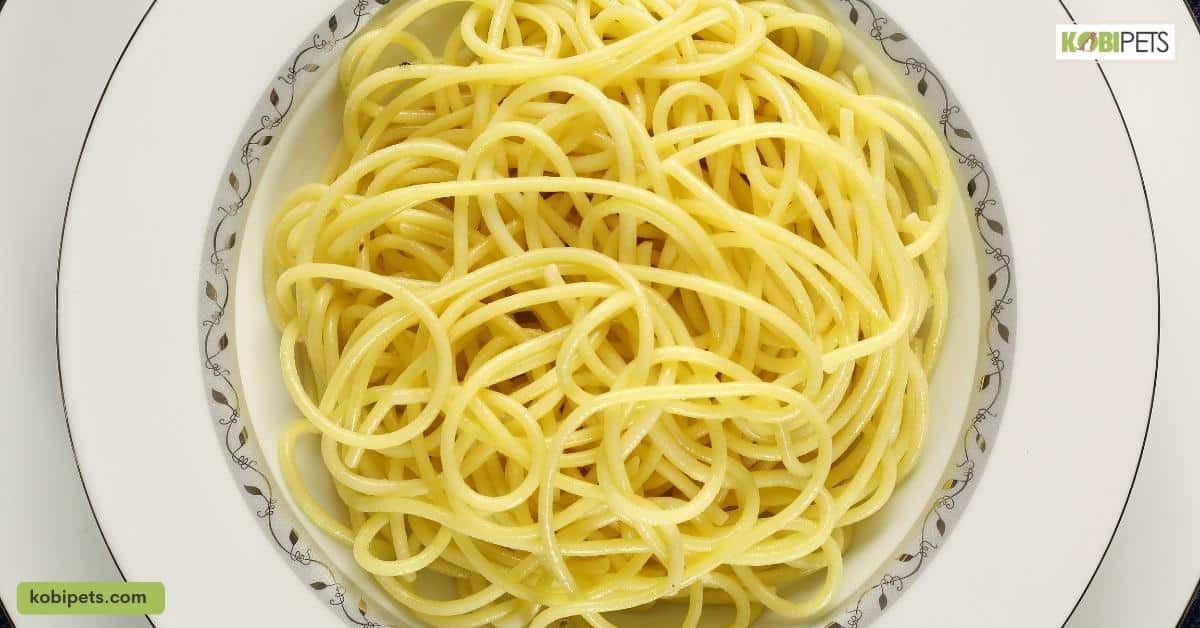As pet owners, it’s natural to want to share our food with our furry friends. But when it comes to feeding them human food, it’s important to know what’s safe and what’s not. One question that often comes up is whether or not dogs can eat pasta.
Yes, dogs can eat pasta in moderation. Cooked plain pasta without any seasoning or sauces is safe for dogs to consume. However, it should only be given as an occasional treat and not as a staple in their diet. Always consult with a veterinarian before introducing new foods to your dog.
Nutritional Value of Pasta
Pasta is a popular food item for humans, but many pet owners wonder if their dogs can safely consume it. While pasta is not harmful to dogs in moderation, it should not be a regular part of their diet. Pasta is primarily made up of carbohydrates, which dogs do not require in high quantities.
However, pasta can provide some nutritional value for dogs, such as protein and fiber. It is important to avoid giving dogs pasta with added sauces or seasonings that may contain ingredients that are harmful to them.
Overall, while dogs can eat pasta, it should only be given in small amounts and as an occasional treat.
Potential Benefits of Feeding Pasta to Dogs
As a pet owner, it is important to provide your dog with a balanced and nutritious diet. While commercial dog food is the ideal choice, many owners may want to supplement their dog’s diet with human food items, such as pasta.
While pasta is not a necessary part of a dog’s diet, it can provide some potential benefits when fed in moderation.
Carbohydrates
Pasta is primarily made up of carbohydrates, which provide energy and fuel to the body. While dogs do not require carbohydrates in high amounts, they do need some for proper bodily function.
Feeding your dog small amounts of pasta can provide them with the energy they need to stay active and healthy.
Protein
While pasta is not a high-protein food item, it does contain some protein that can benefit dogs. Protein is essential for building and repairing tissues in the body.
Feeding your dog pasta with added protein sources such as meat, fish or beans can provide them with the protein they need for a healthy diet.
Fiber
Pasta also contains fiber which is important for maintaining healthy digestion and bowel movements. Feeding your dog pasta can help prevent constipation and other digestive issues by promoting regular bowel movements.
Variety
Feeding your dog a variety of foods is important for ensuring they receive all the necessary nutrients. Pasta can be a great addition to your dog’s diet as an occasional treat or supplement to their regular dog food.
However, it is important to avoid feeding your dog pasta with added sauces or seasonings that may contain harmful ingredients.
Risks and Considerations
While pasta can provide some potential benefits when fed to dogs in moderation, there are also some risks and considerations that should be taken into account. As a pet owner, it is important to be aware of these risks and make an informed decision about whether to feed pasta to your dog.
Overweight and Obesity
Pasta is a high-carbohydrate food item that can contribute to weight gain and obesity in dogs if fed in excess or too frequently. Dogs who are overweight or obese are at an increased risk for health problems such as diabetes, heart disease, and joint issues.
Digestive Issues
Feeding dogs pasta with sauces or seasonings that contain ingredients such as garlic or onions can cause digestive upset and even toxicity in some cases. Additionally, feeding dogs large amounts of pasta can lead to digestive issues such as constipation and diarrhea.
Nutritional Imbalance
Feeding dogs a diet that is primarily made up of pasta can lead to a nutritional imbalance. While pasta can provide some nutrients, it does not contain all the necessary vitamins and minerals that dogs need to maintain optimal health.
Allergies and Sensitivities
Some dogs may be allergic or sensitive to ingredients found in pasta such as wheat or gluten. Feeding dogs pasta can trigger allergic reactions and cause skin irritations or digestive issues.
Guidelines for Feeding Pasta to Dogs
If you decide to feed your dog pasta, it is important to do so safely and responsibly. These guidelines can help ensure that your dog receives the nutritional benefits of pasta while minimizing any risks.
Portion Control
Pasta should only be fed to dogs in small amounts and as an occasional treat. Dogs do not require large amounts of carbohydrates and feeding them too much pasta can contribute to weight gain and obesity.
Plain Pasta
Feeding dogs plain pasta without added sauces or seasonings is recommended. This helps minimize the risk of digestive upset and ensures that your dog is not consuming harmful ingredients such as garlic or onions.
Add Nutritious Ingredients
Adding nutritious ingredients such as lean meat, fish, or vegetables to pasta can provide additional health benefits for dogs. These ingredients can provide protein, vitamins, and minerals that are essential for proper bodily function.
Avoid Allergens
If your dog has a known allergy or sensitivity to certain ingredients found in pasta, such as wheat or gluten, do not feed them pasta. It is important to identify and avoid any allergens that may cause adverse reactions in your dog.
Consult with Your Veterinarian
Always consult with your veterinarian before making any changes to your dog’s diet. They can guide whether feeding pasta is appropriate for your dog’s individual needs and health status.
Alternative Options for Dogs’ Carbohydrate Needs
While pasta can provide dogs with some nutritional benefits, it is not necessary for their diet. If you are looking for alternative options to meet your dog’s carbohydrate needs, there are other food items that may be more suitable.

Alternative Options for Dogs’ Carbohydrate Needs
- Sweet Potatoes: Sweet potatoes are an excellent source of carbohydrates for dogs. They also contain fiber, vitamins, and minerals that are essential for good health.
- Brown Rice: Brown rice is another good carbohydrate source for dogs. It is easily digestible and provides energy without contributing to weight gain or obesity.
- Quinoa: Quinoa is a nutritious grain that provides dogs with protein, fiber, and complex carbohydrates. It is also gluten-free, making it a good choice for dogs with allergies or sensitivities.
- Oatmeal: Oatmeal is a low-fat carbohydrate source rich in fiber and other essential nutrients. It is also easy to digest, making it a good option for dogs with sensitive stomachs.
- Vegetables: Many vegetables such as green beans, peas, carrots, and squash are low in calories and high in fiber and other essential nutrients. They can be cooked and served as a healthy carbohydrate source for dogs.
Cooking Pasta for Dogs: Dos and Don’ts
If you decide to feed your dog pasta, it is important to cook it in a safe and healthy manner. These dos and don’ts can help ensure that the pasta you serve to your dog is nutritious and safe.
| Dos | Don’ts |
|---|---|
| Cook pasta until soft and easily digestible | Do not add garlic or onions to the pasta |
| Serve plain pasta | Do not use pasta with tomato sauce |
| Add lean protein | Do not add cheese or other dairy products |
| Cut pasta into small pieces | Do not use pasta as a primary source of nutrition |
Common Pasta Ingredients to Avoid for Dogs
While pasta can be a safe and nutritious addition to a dog’s diet when fed in moderation, there are some common ingredients found in pasta dishes that can be harmful to dogs.
As a pet owner, it is important to be aware of these ingredients and avoid feeding them to your dog to prevent any negative effects.

Common Pasta Ingredients to Avoid for Dogs
- Garlic: Garlic can cause digestive upset and even toxicity in dogs. It can damage red blood cells and lead to anemia in severe cases.
- Onions: Onions contain compounds that can cause oxidative damage to a dog’s red blood cells, resulting in anemia and other health problems.
- Tomato sauce: Tomatoes contain solanine, a toxic compound that can cause digestive upset and even cardiac issues in some dogs. Tomato sauce may also contain added sugars and salt, which can contribute to obesity and other health problems.
- Cheese: While some dogs can tolerate small amounts of cheese, it is generally not recommended as it is high in fat and can lead to weight gain or pancreatitis in some dogs.
- Salt: Excess salt can lead to dehydration and electrolyte imbalances in dogs. Avoid feeding your dog pasta dishes that are high in salt or sodium.
Signs of Pasta-related Digestive Issues in Dogs
Feeding pasta to dogs can cause digestive issues, especially if fed in large amounts or with added sauces and seasonings. It is important for pet owners to be aware of the signs of pasta-related digestive issues in dogs. Some common symptoms to look out for include vomiting, diarrhea, constipation, bloating, and excessive gas.
Dogs may also experience abdominal discomfort and loss of appetite if they are experiencing digestive issues. If you notice any of these symptoms in your dog after feeding them pasta, it is important to consult with your veterinarian.
They can help determine the underlying cause of these symptoms and provide appropriate treatment.
In conclusion
It is safe for dogs to eat pasta in moderation as long as it is cooked plain and without seasoning or sauce. However, it should not be a regular part of their diet as it lacks the necessary nutrients to maintain their health.
It is important to consult with your veterinarian before introducing new foods into your dog’s diet, as they will be able to provide tailored advice based on their specific needs and medical history. While pasta may be a tasty treat for your furry friend, it should always be given in moderation and as part of a balanced diet.





















